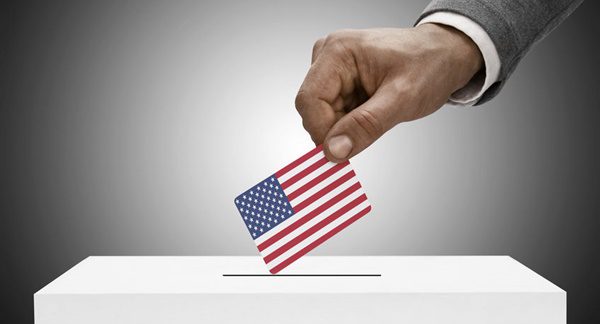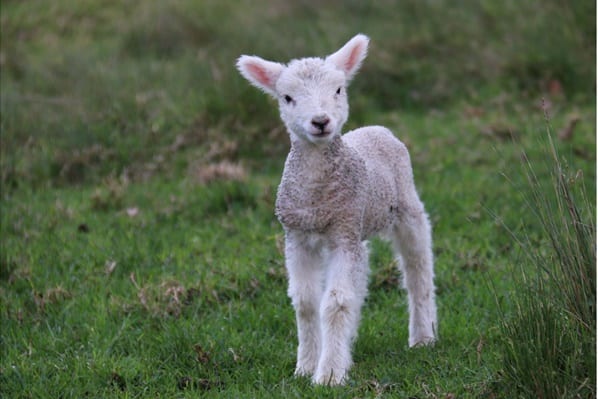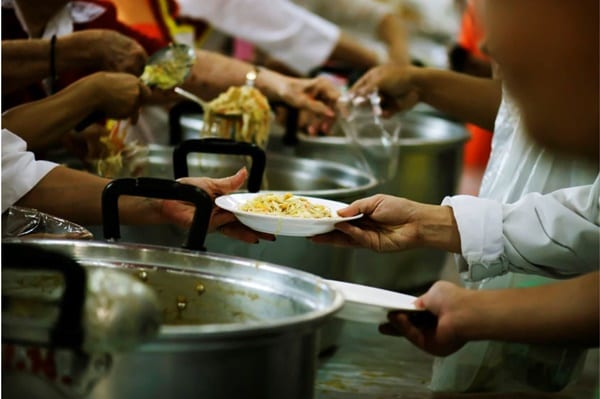In 1996, there was a KKK rally in Michigan. Thank God there were hundreds of people there to protest the KKK rally. In fact, as we are seeing today, about 22 years later, the people protesting the KKK far outnumbered the KKK. “The 17 Klan members were met by about 200 counterprotesters.”
A white supremacist with a tattoo of the Confederate Flag on his arm walked by the crowd of counterprotesters. One person in the crowd had a bullhorn and shouted through it, “There’s a Klansman. Get him!”
The crowd chased after the man. One person who chased after him was Keshia Thomson. She said, “I wanted to verbally harass him and torment him with my voice and ask ‘What did I ever do to you?’”
But when the crowd caught up to the man, people started beating him with sticks from their protest signs and they began stomping on him with their feet. Keshia said the violence against the man “spread like wildfire.”
As this white supremacist fell to the ground and was getting beat up, Keshia, an African American woman, did something remarkable. She threw her body on top of this man. She reported that she put his head up to her chest and she yelled for people to stop beating him. I don’t know if you have seen the pictures of this event, but they are amazing.
But some members in the crowd continued to hit the man, and in doing so, they also hit Keshia. Soon, some people saw what was happening, and they pushed the people acting in violence away. Then Keshia walked the man to safety.
She said, “When people are in a crowd they are more likely to do things they would never do as an individual. Someone had to step out of the pack and say, ‘This isn’t right.’”
To be honest with you, I don’t know if I have that kind of love within me. I don’t know if I have that kind of courage. Keshia could have been critically beaten as she sought to save this white supremacist’s life.
Why did Keshia do it? She said her faith compelled her to do it. In fact, she doesn’t remember making a conscious decision to save the man. She said it was as if two angels picked her up by the shoulders and dropped her on top of the man to save him.
I don’t know about you, but in the background of this story, I hear the words of Jesus who said that the fundamental act of the Christian faith is to love God and love your neighbor, who may even include your enemies.
You see, we often think of love as primarily an emotion. When we think of love, we often think of romantic comedies like the Notebook. But in the Jewish and Christian spiritual context, love is not primarily an emotion of a happy feeling towards someone. Love is a verb.
Jesus said his mission was to love and that love led him to actively proclaim Good News to the poor, to proclaim freedom to the prisoners, to give recovery of sight to the blind, to set the oppressed free, and to proclaim the year of the Lord’s favor.
So for Jesus, love is a verb. It’s the same love that Ruth showed Naomi when she traveled with her to a distant land. Ruth loved Naomi through actions. Ruth said to her mother in law, “Where you go, I will go. Where you lodge, I will lodge. Your people shall be my people. And your God will be my God.”
And Keshia Thomson also knew that love is a verb. She showed up to that KKK rally in order to say “No” to white supremacy. But Keshia knew that our struggle is not with flesh and blood. Our struggle is with the powers and principalities, including the power and principality that is racism and white supremacy. And so she put love into action in order to say No to the KKK and she put love into action in order to say Yes to saving this man’s life.
Last Sunday, some of us learned at the last minute about the vigil at the synagogue Beth Israel in Portland. The vigil was in response to the horrific and tragic shooting at the Tree of Life synagogue in Pittsburgh last Saturday. About ten religious leaders from Judaism, Christianity, and Islam spoke at the vigil. Each spoke from their particular religious tradition and each said that the answer to the conflicts and tragedies we are experiencing is to put more love and compassion and kindness into the world.
My friends, I think God’s radical love and compassion and kindness is the hope for our world. This is the way that says No to injustice and hate while it says Yes to justice and love.
This Tuesday is election day. And I gotta tell you that I’m hopeful. But I don’t know what’s going to happen. My hopes may be dashed. But here’s the thing, no matter what happens this Tuesday, God has a mission for us. My ultimate hope is not in politics. My ultimate hope is in God and in our divine mission.
Because Jesus tells us to love our neighbor as we love ourselves. And we must always remember that our neighbor includes our
Jewish neighbor
Muslim neighbor
Atheist neighbor
Agnostic neighbor
Palestinian neighbor
Immigrant neighbor
Brown neighbor
Black neighbor
White neighbor
Rich neighbor
Poor neighbor
Gay neighbor
Lesbian neighbor
Straight neighbor
Transgender neighbor
Fun neighbor
Annoying neighbor
Enemy neighbor
Republican neighbor
Democratic neighbor
We’re called to love them all as we love ourselves. So as Tuesday comes and goes, remember that Jesus invites us on a mission to love. Because love is a verb that starts with God’s unconditional love given to us. And then God invites us to share that love with others. As Jesus reveals, love does not mean we sit back and play nice with injustice. Like Keshia Thompson, it might be that we risk showing up at protest rallies. And like Keshia Thompson, it means that as we struggle for justice, we risk loving even our enemies. For love means that we seek to actively seek to make the world a more just place. So no matter what happens the Tuesday, the world is going to need a group of people to shine God’s love and justice into the world
May we be that group of people. Amen.
Image: 123rf.com
Stay in the loop! Join Teaching Nonviolent Atonement on Facebook!












